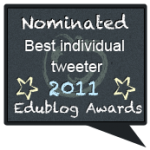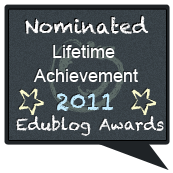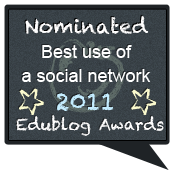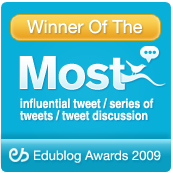When it comes to the use of technology in education, I often say that it is not a generational gap, but a learning gap that prevents our older generations from accepting new technology tools for learning. I think I may have to amend my position. There are a few things about mobile devices that point to a generational gap that may be preventing by some an acceptance of these devices as tools for learning. I am a true believer that we consider an item as technology if it was invented in our lifetime. Therefore, I consider a cellphone technology, but my car in some form or another has always been with me since the 60’s and to me that is my car and not technology.
My younger daughter has had her own cellphone since Grammar school and full access to the Internet at home all of her life. She was Social Media involved as a toddler with Penguin World. She has always had a laptop, iPad and an iPod. We are fortunate enough and grateful to have afforded her those tools. She is now headed off to college with these experiences and tools in place. I often learn from her simply by observing how she uses things to learn.
This weekend we were spending time at the beach house that is pretty much cut off from the world. My daughter was working on a final paper and asked if she could download a book she needed from Amazon. I gave her permission and watched her download it to her Smartphone as she continued working on her laptop. In consideration of my own ailments and frailties, I asked if she would not better be able to read the book if it were on her laptop instead of her smartphone?
“No, this will be just fine,” was the answer.
That is when I got it. I would struggle with reading a book from a Smartphone, but not so much a teen’s problem. Teens are reading text on their phones 24/7. They watch full-length movies and TV shows on their Smartphones. They do not need to make adjustments from previous habits. I had to adjust from Desktop use to laptop use as an adult. That is not a problem for kids who are multi-users when it comes to the devices of technology.
The other big stumbling point when it comes to the acceptance of mobile devices used as tools for learning is the fact that the older generation perceives a cellphone as a phone, as the name would imply. Actually, the smartphone is a complex computer with phone capabilities in addition to thousands of other applications. Again, the youthful generation just uses the technology for communication, curation, entertainment, research, and photography without the oohs and aahs, while the older generation just marvels at all the bells and whistles of the new technology vicariously, through the experiences of others, often younger. While the older generation tries to figure out how to grant permission, while maintaining control over this new-fangled technology, the youth is employing it everywhere and all of the time, except in some cases in school. Adults are delusional to think that they have the power to control this technology.
If schools need to control Smartphone use, let them figure out ways to incorporate them interactively into lessons. Teaching kids responsible use is the best form of control. It is lifelong skill. Mobile devices provide a gateway to more relevant content than could ever be placed in a textbook. Why are we not preparing our kids with the skills to access, assess and utilize that content? Will they not need these skills in the technology-driven world in which they will live? They come to us trusting that we will be preparing them with what they need to thrive in their world in the future, but many of our educators are not even in the world of today. I have said this before. If we are going to educate our children for what they will need, we must educate our educators first. Technology is changing things too fast for us all to keep up without a little help from others. There is so much to know, that we have reached a point where many of us do not know what it is that we do not know. Whether this roadblock to technology use in education is a learning thing or a generational thing, collaboration may be the map to the way out. Educators need to connect and collaborate in all of the methods we have available to us in order to learn and share.











